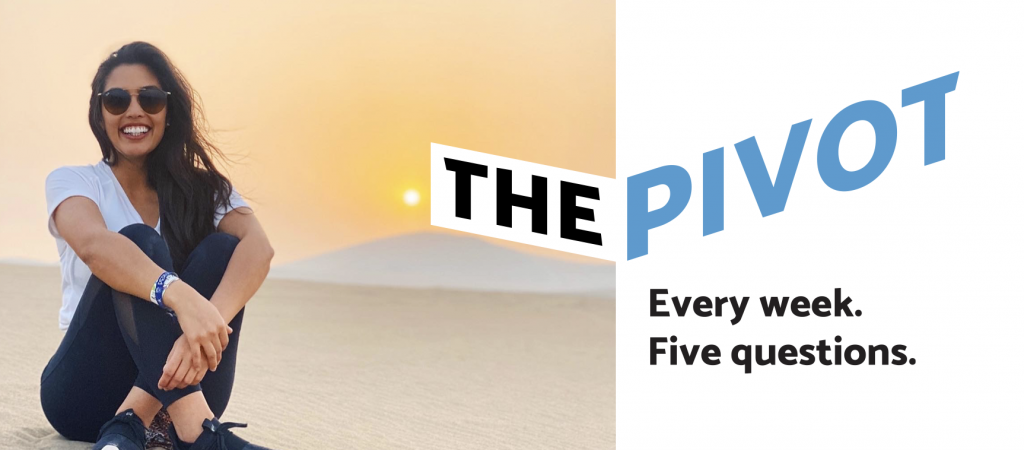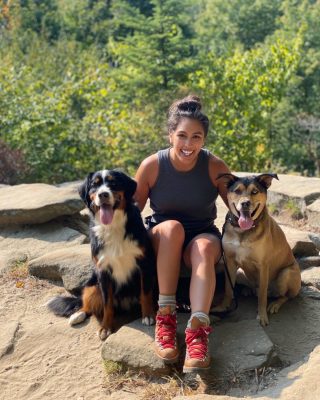
April Dee Aviles leads anti-racist efforts at one of the largest health departments in the United States.

What’s your role in public health?
I serve as the director of equity and inclusion at the New York City Department of Health and Mental Hygiene. In this role, I lead internal anti-racist reform efforts at one of the largest health departments in the country. Broadly, I’m leading and supporting my peers as they confront and dismantle the racist systems and practices that create racial inequities; we’re also working to develop race-conscious public health approaches.
I’m an alumna of the maternal and child health department at the Gillings School, where I earned a Master of Public Health in 2017 and served as co-president of the Minority Student Caucus.

Can you describe your focus area in one sentence?
I provide leadership and strategic direction to JEDI (justice, equity, diversity and inclusion) and anti-racist efforts of public health agencies.
That includes initiatives related to internal systems and culture as well as community-facing policies and programs.

What brought you to public health?
My lived experiences! All my intersecting identities led me to where I am today. Public health has always been a focus of mine — I just didn’t know it was called public health until I entered college. I found a field that I love, where I can use my voice and my fire to elicit change that impacts not just an individual but an entire community.
My passion for public health comes from my understanding of how the world sees me. Over my years in public health, I have strengthened my equity muscle and begun challenging the approaches and norms I saw in the field. I use my knowledge and lived experiences as an opportunity to decolonize the way we approach public health. I’m doing it pa’ la cultura.

How have you pivoted in response to the coronavirus pandemic?
Oh man, the pivot was real! NYC was one of the cities that got hit hardest earlier in the pandemic. I was “activated” to help with our emergency response for a period of 18+ months straight. For most of that time, I served as the deputy lead for the Equity Communications Branch that was part of our Equity Emergency Response Group.

April rests during a hike with her dogs.
My role was to ensure that the agency was elevating the experiences, knowledge and voices of community residents and partners in all COVID-19 messaging and engagement approaches. I was amplifying anti-racist narratives and community-centered strategies as well as supporting community-based approaches and collective healing projects. Basically, I was doing what I could to make sure our emergency response wasn’t perpetuating racism and harming communities. I also did some community-facing work by managing one of the vaccination sites run by our health department.
I’d say the biggest pivot was the sheer amount of stress that the pandemic caused me — not just as a public health professional, but also as a person of color. At one point, I just broke down and was so emotionally exhausted that I rented an SUV, bought some camping gear, and drove all the way to Wyoming and Montana to be alone in nature with my dogs: no human interaction, no news. It was a much needed, month-long cleansing.
I would be lying, though, if I said I wasn’t still doing remote work when not out hiking. I had to reframe my whole work ethic and remind myself that I can’t do my job effectively if I am running myself into the ground. Burnout took on a whole different meaning to me, and truthfully, I’m still recovering from the nonstop work that was my life for so much of the pandemic.

Who are you when you’re at home?
When I’m home, I am relaxing and recalibrating. Racial equity work can take a toll on BIPOC professionals, so taking time to recharge and focus on our own physical and mental well-being is a necessary part of this work.
For me, that can be tending to my plants (my apartment has become quite a jungle!) or doing some art therapy. I also enjoy spending time outdoors and deepening my relationship with pachamama. Putting on my boots and hiking with my two amazing pups, Muenster and Manchego, brings me the most joy and healing.
Read more interviews in The Pivot series.
Published: 01/21/2022
